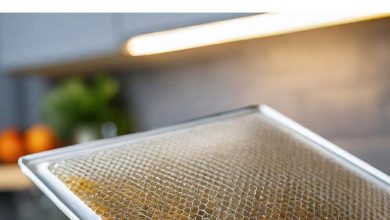Do you need to wash eggs before using them?

The question of whether to wash eggs before cooking is a surprisingly important one, and the answer often depends on where your eggs came from. While eggs may seem perfectly simple, how you handle them before they hit your frying pan or mixing bowl can determine whether your meal is safe and healthy.
ADVERTISEMENT
“Eggs look harmless — small, smooth, ordinary. Yet the way you handle them before they hit the pan can quietly decide whether your breakfast nourishes or harms.”
ADVERTISEMENT
This is why the confusion exists. Some cooks immediately wash every single egg shell they bring home, believing it’s the best way to get rid of germs or dirt. Other people are strict about never letting tap water touch the shell. Understanding the natural biology of an egg is key to settling this debate, as “the truth lies in a hidden layer of protection most never notice — and once it’s gone, you can’t get it back.”
ADVERTISEMENT
Nature’s Invisible Shield: The Egg Bloom
Every hen’s egg comes naturally equipped with a very special defense system. This system is a clear, protective coating known as the cuticle (or, more commonly, the “bloom”).
“Every egg is born with a natural defense called the cuticle, or “bloom.” This nearly invisible coating seals microscopic pores in the shell, acting as nature’s armor against bacteria like Salmonella.”
The shell of an egg is actually covered in tiny, microscopic pores.3 The bloom’s job is to seal these pores completely. By doing this, it acts as a barrier to prevent unwanted bacteria, such as Salmonella, from entering the egg itself.
This is where the risk of washing comes in. When you wash an unprocessed egg under running water—especially if the water is colder than the egg—you can easily remove this natural protection. “When you wash an unprocessed egg under running water, you can strip away that coating — and in doing so, make it easier for bacteria to enter.”
In fact, washing the egg and removing the bloom can sometimes create a path for bacteria to move from the dirty outside shell to the clean inside of the egg. “What feels like cleanliness may, in fact, undo what nature designed to keep you safe.”
How Eggs Are Processed in Stores
The handling of eggs differs significantly depending on the country and how the egg is processed before it reaches the supermarket shelf.
In many places, including the United States, regulations require large egg producers to wash and sanitize their eggs immediately after collection. “In many countries, store-bought eggs are already washed and sanitized under controlled conditions, then refrigerated to maintain safety.”
This commercial washing process removes the natural bloom, but it is done using specific equipment, warm water, and approved sanitizers. Once the bloom is removed, the egg must be kept chilled (refrigerated) to slow down the growth of any bacteria that might enter the shell.6 This means that if you buy a carton of eggs from a typical grocery store, you do not need to wash them at home—they are already clean and washing them again can only increase the risk.
Handling Farm-Fresh Eggs
If you buy eggs directly from a small farmer, a roadside stand, or you collect them from your own backyard chickens, the situation is different.
These farm-fresh eggs are typically sold unwashed, meaning they still have their natural bloom intact.7 For these eggs, the protection relies entirely on the natural coating. “But farm-fresh, unwashed eggs still depend on their natural bloom.”
For these unwashed eggs:
-
Avoid washing entirely until the moment you are ready to crack them into a bowl or pan.
-
If an egg shell has a little dirt or feather attached, it’s best to “spot-clean it gently or discard it altogether.” Use a dry cloth to gently wipe off any loose debris.
Simple Rules for Safe Egg Handling
Regardless of whether your eggs are store-bought or farm-fresh, following a few basic safety steps is the best way to ensure your food is safe:
-
Keep it Clean: “Handle eggs with clean hands.” Always wash your hands immediately after touching raw eggs or the carton they came in.
-
Proper Storage: Store store-bought (washed) eggs in the refrigerator at a temperature of 8$40^{\circ}\text{F}$ (or 9$4^{\circ}\text{C}$) or below.10 Unwashed farm eggs can often be stored safely at room temperature for a period, but refrigeration is always the safest option for long-term storage.
-
Cook Thoroughly: “Cook them thoroughly.” Make sure the yolk and white are firm to minimize any risk of harmful bacteria.
The choice about washing eggs comes down to respecting the egg’s natural defenses. “The lesson is simple: sometimes protection looks like fragility, and wisdom means knowing when to leave nature’s design untouched.”




